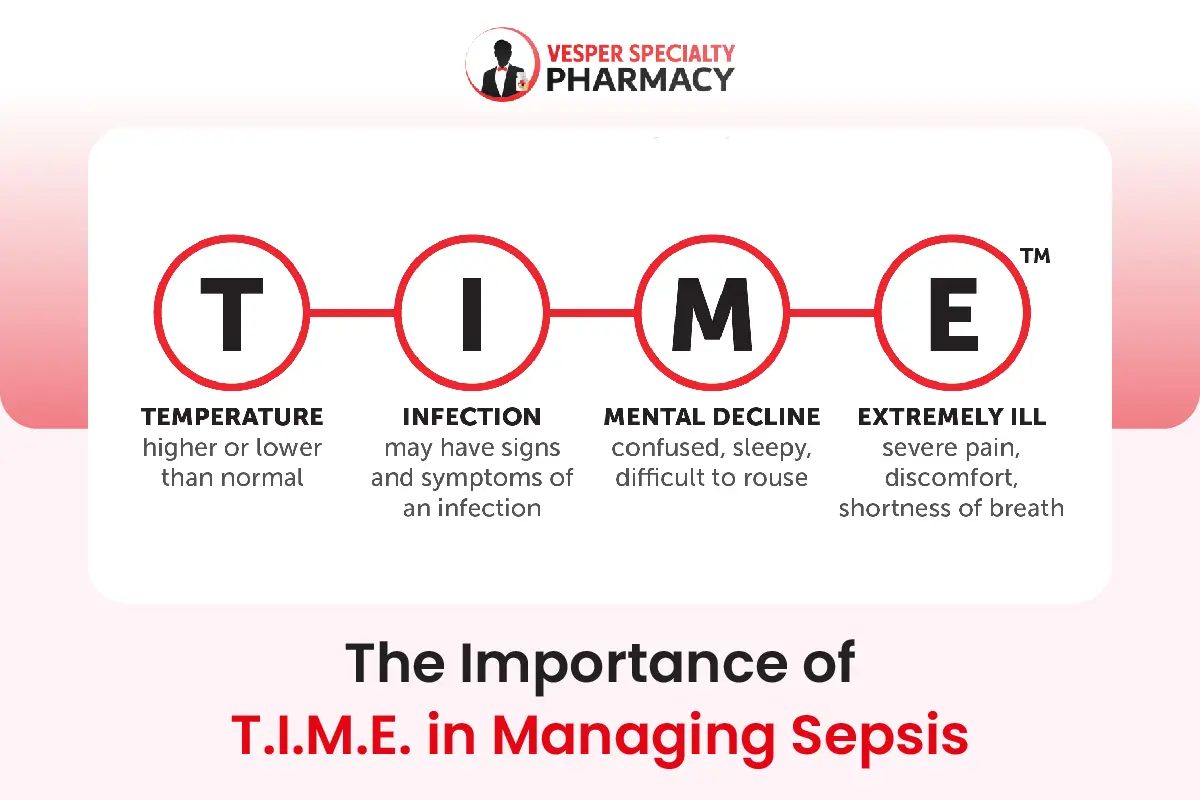Diabetes is a prevalent and chronic medical condition that affects millions of people worldwide. It is characterized by elevated levels of blood sugar, also known as glucose, which can lead to various health complications if not properly managed. Diabetes is often surrounded by misconceptions and unanswered questions. In this blog post, we will delve into the intricacies of diabetes, exploring its different types, causes, symptoms, complications, and effective management strategies.
What is Diabetes?
Diabetes is a complex metabolic disorder that profoundly influences how the body processes glucose, commonly known as sugar. Glucose is a crucial source of energy for cells, and its regulation is intricately linked to the hormone insulin.
Understanding the fundamentals of diabetes involves unraveling the disruptions in this delicate balance and comprehending the role of insulin in maintaining optimal blood sugar levels.
Explanation of Diabetes as a Metabolic Disorder
At its core, diabetes is a metabolic disorder characterized by the body’s inability to efficiently manage glucose. In a healthy individual, the digestive system breaks down carbohydrates from food into glucose, which enters the bloodstream.
The pancreas, a vital organ situated behind the stomach, responds by producing insulin. Insulin acts as a key that unlocks cells, allowing glucose to enter and be utilized for energy. In diabetes, this regulatory mechanism malfunctions, leading to abnormal elevations in blood sugar levels.
Overview of the Role of Insulin in Diabetes
Insulin, produced by the beta cells in the pancreas, plays a pivotal role in glucose metabolism. When blood sugar levels rise after eating, the pancreas releases insulin into the bloodstream. Insulin facilitates the uptake of glucose by cells, where it is either used for immediate energy or stored for later use.
Additionally, insulin inhibits the liver from releasing excess glucose into the bloodstream. In individuals with diabetes, either the pancreas fails to produce sufficient insulin (as in Type 1 diabetes) or the body’s cells develop resistance to the insulin produced (as in Type 2 diabetes).
Consequently, glucose accumulates in the bloodstream, depriving cells of essential energy and leading to a multitude of health complications.
Mention of the Increasing Prevalence of Diabetes Worldwide
Diabetes is a global health concern, and its prevalence has been steadily rising. The World Health Organization (WHO) estimates that millions of people worldwide are affected by diabetes, and the numbers continue to escalate. (data resource: Diabetes – World Health Organization) Factors contributing to this surge include sedentary lifestyles, poor dietary habits, and increasing rates of obesity.
While Type 2 diabetes has historically been associated with adults, there is a concerning trend of its occurrence in children and adolescents, emphasizing the urgency of addressing lifestyle factors contributing to the development of this condition.
The consequences of uncontrolled diabetes are far-reaching, encompassing cardiovascular complications, kidney damage, nerve disorders, and eye-related issues. Recognizing the signs and risk factors of diabetes is crucial for early detection and intervention.
Efforts to raise awareness about diabetes prevention, promote healthy lifestyles, and ensure access to effective management strategies are essential in curbing the escalating prevalence of this metabolic disorder.
Types of Diabetes
Diabetes is a diverse and multifaceted medical condition, with several distinct types, each presenting unique challenges and characteristics. Understanding these types is essential for proper diagnosis, treatment, and management.
Here, we delve into the main categories of diabetes:
Type 1 Diabetes
- Type 1 diabetes is an autoimmune condition characterized by the body’s immune system mistakenly attacking and destroying the insulin-producing beta cells in the pancreas.
- Without sufficient insulin, the body cannot regulate blood sugar levels, leading to an accumulation of glucose in the bloodstream.
- Type 1 diabetes typically emerges in childhood or adolescence, and individuals diagnosed with this form of diabetes require lifelong insulin therapy for survival.
- The exact cause of Type 1 diabetes is not fully understood, but genetic and environmental factors are believed to play a role.
Type 2 Diabetes
- Type 2 diabetes is the most common form of diabetes and is often associated with insulin resistance and inadequate insulin production.
- Insulin resistance occurs when the body’s cells do not respond effectively to insulin, hindering glucose uptake.
- Over time, the pancreas may struggle to produce enough insulin to overcome this resistance, leading to elevated blood sugar levels.
- Lifestyle factors, such as an unhealthy diet, sedentary behavior, and obesity, significantly contribute to the development of Type 2 diabetes.
- While it often affects adults, an alarming trend shows an increasing prevalence among children and adolescents.
Gestational Diabetes
- Gestational diabetes develops during pregnancy when the body cannot produce enough insulin to meet the increased demands.
- Hormonal changes during pregnancy can lead to insulin resistance, contributing to elevated blood sugar levels.
- Gestational diabetes usually occurs in the second half of pregnancy and poses risks for both the mother and the baby.
- While it typically resolves after childbirth, women with a history of gestational diabetes are at an increased risk of developing Type 2 diabetes later in life.
Other Types of Diabetes
- Monogenic Diabetes: This rare form of diabetes results from a single gene mutation affecting insulin production. It is often diagnosed in infancy or early adulthood.
- Secondary Diabetes: Diabetes can also develop as a result of other medical conditions, such as pancreatic diseases, hormonal disorders, or the use of certain medications.
- Cystic Fibrosis-Related Diabetes (CFRD): Individuals with cystic fibrosis may develop diabetes due to pancreatic complications associated with their underlying condition.
Causes and Risk Factors
The development of diabetes is influenced by a myriad of factors, ranging from genetic predisposition to lifestyle choices and environmental influences. Understanding these causes and risk factors is crucial for both prevention and effective management of this complex condition.
Genetics
- Genetic factors play a significant role in the development of diabetes. Individuals with a family history of diabetes are at a higher risk of inheriting genetic markers that may predispose them to the condition.
- While genetics can contribute to both Type 1 and Type 2 diabetes, the influence is more pronounced in Type 2 diabetes.
Lifestyle Factors
- Unhealthy lifestyle choices are key contributors to the rising prevalence of diabetes. A sedentary lifestyle, poor dietary habits, and excessive consumption of processed sugars and unhealthy fats can significantly increase the risk of developing Type 2 diabetes.
- Lack of physical activity and weight gain contribute to insulin resistance, a hallmark of Type 2 diabetes.
Environmental Factors
Environmental factors, such as exposure to certain toxins and pollutants, may contribute to the development of diabetes. Research is ongoing to explore the impact of environmental triggers on the onset of the disease.
Obesity and Type 2 Diabetes
- Obesity is a major modifiable risk factor for Type 2 diabetes. Excess body fat, particularly abdominal fat, is associated with insulin resistance.
- Adipose tissue (fat cells) produces hormones and cytokines that can interfere with insulin function, leading to elevated blood sugar levels.
- Weight loss and lifestyle modifications, including regular physical activity, can significantly reduce the risk of developing Type 2 diabetes.
Family History
- A family history of diabetes increases an individual’s susceptibility to the condition. Genetic factors inherited from parents can influence the likelihood of developing diabetes.
- Individuals with one or more first-degree relatives (parents or siblings) with diabetes are at a higher risk.
Age
Age is a non-modifiable risk factor, with the risk of diabetes increasing as individuals get older.
While Type 2 diabetes is more common in adults, the prevalence among children and adolescents is rising, largely due to increasing rates of childhood obesity.
Gestational Diabetes
- Women who have experienced gestational diabetes during pregnancy are at an increased risk of developing Type 2 diabetes later in life.
- This underscores the importance of postpartum monitoring and lifestyle modifications to reduce the risk.
Ethnicity
Certain ethnic groups, including African Americans, Hispanic/Latino Americans, Native Americans, Asian Americans, and Pacific Islanders, are at a higher risk of developing diabetes.
Genetic and environmental factors specific to these ethnicities contribute to the elevated risk.
Symptoms of Diabetes
Recognizing the symptoms of diabetes is crucial for early diagnosis and prompt intervention. The manifestation of these symptoms can vary depending on the type of diabetes and the individual. Here is an overview of common symptoms associated with diabetes:
Increased Thirst and Hunger
- Individuals with diabetes often experience an unquenchable thirst (polydipsia) and increased hunger (polyphagia).
- Elevated blood sugar levels can lead to dehydration, prompting the body to crave more fluids. Additionally, the inability of cells to effectively utilize glucose for energy results in persistent feelings of hunger.
Frequent Urination
- Excessive urination (polyuria) is a hallmark symptom of diabetes. High levels of glucose in the bloodstream can overwhelm the kidneys, leading to increased urine production.
- The need to urinate frequently, especially during the night, is a common indicator of diabetes.
Fatigue and Weakness
- Persistent fatigue and weakness are common symptoms of diabetes. Despite increased hunger, the body’s cells are deprived of adequate energy due to the inability to utilize glucose efficiently.
- The feeling of tiredness may be pronounced after meals, as the body struggles to manage elevated blood sugar levels.
Unexplained Weight Loss
- Unintended weight loss may occur in individuals with diabetes, particularly in those with Type 1 diabetes.
- The body resorts to breaking down muscle and fat for energy when glucose cannot be effectively utilized. This can result in unexplained and unintentional weight loss.
Blurred Vision
- Blurred vision or changes in eyesight can be a symptom of diabetes. Elevated blood sugar levels can affect the lens of the eye, leading to temporary changes in vision.
- Long-term uncontrolled diabetes may contribute to the development of diabetic retinopathy, a serious eye condition that can lead to vision impairment or blindness.
It is crucial to note that the onset and severity of these symptoms can vary among individuals. Some people may experience subtle signs, while others may have more pronounced symptoms. Additionally, the symptoms of Type 1 diabetes often manifest rapidly, while those of Type 2 diabetes may develop gradually and go unnoticed for an extended period.
Importance of Recognizing These Signs for Early Diagnosis
Early recognition and diagnosis of diabetes are paramount for effective management and the prevention of complications. Uncontrolled diabetes can lead to serious health issues, including cardiovascular problems, kidney damage, nerve disorders, and vision impairment.
Individuals experiencing any combination of the aforementioned symptoms, especially those with known risk factors, should seek prompt medical attention. Healthcare professionals can conduct blood tests to measure blood sugar levels and diagnose diabetes. Timely intervention, which may include lifestyle modifications, medication, and insulin therapy, can significantly improve outcomes and quality of life for individuals with diabetes.
Complications of Diabetes
Living with diabetes requires vigilant management to prevent potential long-term complications that can significantly impact various organ systems. Understanding these complications is essential for individuals with diabetes and their healthcare providers to formulate effective prevention and treatment strategies.
Cardiovascular Issues (Heart Disease and Stroke)
- Diabetes significantly increases the risk of cardiovascular diseases, including heart disease and stroke.
- Elevated blood sugar levels can contribute to the buildup of plaque in the arteries, leading to atherosclerosis. This, in turn, increases the risk of heart attacks and strokes.
- Individuals with diabetes should prioritize heart health by adopting a heart-healthy lifestyle, including a balanced diet, regular exercise, and blood pressure control.
Nerve Damage (Neuropathy)
- Diabetic neuropathy is a common complication that affects the nerves, particularly in the extremities such as the feet and hands.
- Symptoms may include tingling, numbness, and pain. In severe cases, it can lead to loss of sensation, making individuals susceptible to injuries and infections.
- Tight blood sugar control, regular foot care, and symptom management are crucial in preventing and managing neuropathy.
Kidney Disease (Nephropathy)
- Diabetes is a leading cause of kidney disease, known as diabetic nephropathy.
- Persistent high blood sugar levels can damage the small blood vessels in the kidneys, impairing their ability to filter waste and excess fluids.
- Regular monitoring of kidney function, blood pressure control, and blood sugar management are essential to prevent and slow the progression of kidney disease.
Eye Problems (Retinopathy)
- Diabetic retinopathy is a serious eye condition that can lead to vision impairment and blindness.
- Elevated blood sugar levels damage the blood vessels in the retina, causing bleeding and swelling.
- Regular eye exams, blood sugar control, and early intervention are critical in preventing and managing diabetic retinopathy.
Foot Problems and Amputations
- Diabetes can lead to complications affecting the feet, including poor circulation and nerve damage.
- Reduced sensation in the feet can result in injuries going unnoticed, leading to infections and ulcers.
- Regular foot care, proper footwear, and early treatment of foot issues are essential to prevent complications that may require amputations.
Importance of Diabetes Management in Preventing Complications
Effective management of diabetes is paramount in preventing and minimizing complications. Key strategies include:
- Blood Sugar Control: Maintaining target blood sugar levels through medication, insulin therapy, and lifestyle modifications is fundamental in preventing complications.
- Blood Pressure Management: Controlling blood pressure is crucial, as high blood pressure exacerbates the risk of cardiovascular and kidney complications.
- Cholesterol Control: Managing cholesterol levels helps mitigate the risk of cardiovascular diseases associated with diabetes.
- Regular Monitoring: Routine check-ups, blood tests, and screenings are vital for early detection of complications, allowing timely intervention.
Education about the potential complications of diabetes empowers individuals to make informed choices about their health. A collaborative approach involving healthcare professionals, individuals with diabetes, and their support networks is essential in implementing effective management strategies and minimizing the impact of complications.
Diagnosis and Screening
The timely and accurate diagnosis of diabetes is crucial for initiating appropriate management strategies and preventing complications. Various diagnostic tests are employed to identify diabetes and assess blood sugar levels. Additionally, regular screening is vital, especially for individuals at risk of developing diabetes.
Fasting Blood Sugar Test
- The fasting blood sugar test is one of the primary diagnostic tools for diabetes. It measures the blood glucose levels after an overnight fast.
- A fasting blood sugar level of 126 milligrams per deciliter (mg/dL) or higher on two separate occasions is indicative of diabetes.
- This test is convenient and often the initial step in diagnosing diabetes.
Oral Glucose Tolerance Test (OGTT)
- The oral glucose tolerance test involves fasting overnight, followed by drinking a sugary solution. Blood sugar levels are then measured at intervals over the next few hours.
- A blood sugar level of 200 mg/dL or higher two hours after the glucose intake is diagnostic for diabetes.
- OGTT is especially useful in diagnosing gestational diabetes during pregnancy.
A1C Test
- The A1C test, also known as the hemoglobin A1C or glycosylated hemoglobin test, provides a longer-term measure of blood sugar levels.
- This test reflects average blood sugar levels over the past two to three months, offering a more comprehensive view of glucose control.
- An A1C level of 6.5% or higher is indicative of diabetes.
Importance of Regular Screening for Individuals at Risk
Regular screening is essential for individuals at risk of developing diabetes, including those with:
- Family History: Individuals with a family history of diabetes are at an increased risk and should undergo regular screenings.
- Obesity: Being overweight, especially with excess abdominal fat, is a significant risk factor for Type 2 diabetes.
- Age: The risk of diabetes increases with age, and regular screenings become more critical, especially for those over 45.
- Physical Inactivity: Sedentary lifestyles contribute to insulin resistance and elevate the risk of developing diabetes.
- Ethnic Background: Certain ethnic groups, including African Americans, Hispanic/Latino Americans, Native Americans, Asian Americans, and Pacific Islanders, are at a higher risk.
Regular screenings allow for the early detection of diabetes or prediabetes, enabling timely intervention to manage blood sugar levels and prevent complications. For individuals with prediabetes, lifestyle modifications, including dietary changes, increased physical activity, and weight management, can be effective in preventing the progression of diabetes.
Managing Diabetes
Effectively managing diabetes involves a comprehensive and personalized approach that addresses various aspects of daily life. Key components of diabetes management encompass blood sugar monitoring, medications, lifestyle modifications, self-care, and education.
Blood Sugar Monitoring
- Regular monitoring of blood sugar levels is fundamental in diabetes management. It provides valuable insights into how lifestyle choices, medications, and other factors impact blood glucose.
- Individuals with diabetes often use blood glucose meters to check their levels at home. Target ranges are determined by healthcare providers based on individual needs.
- Consistent monitoring allows for timely adjustments in medication, diet, and exercise to maintain optimal blood sugar control.
Medications
- Insulin: For individuals with Type 1 diabetes and some with Type 2 diabetes, insulin therapy is crucial. It may involve multiple daily injections or the use of insulin pumps to mimic the body’s natural insulin release.
- Oral Medications: Various oral medications are available for Type 2 diabetes, each with distinct mechanisms of action. These medications enhance insulin sensitivity, reduce glucose production, or stimulate insulin release from the pancreas.
Lifestyle Modifications
- Diet: Adopting a balanced and nutritious diet is a cornerstone of diabetes management. This includes monitoring carbohydrate intake, choosing whole foods, and controlling portion sizes. Carbohydrate counting and the glycemic index are often used to guide dietary choices.
- Exercise: Regular physical activity is vital for managing blood sugar levels, improving insulin sensitivity, and maintaining overall health. Both aerobic exercises (such as walking or cycling) and strength training contribute to a well-rounded fitness routine.
Self-Care and Education
- Self-Monitoring: Individuals with diabetes need to be proactive in self-monitoring and managing their condition. This involves regular blood sugar checks, tracking food intake, and staying aware of symptoms.
- Education: A crucial aspect of diabetes management is ongoing education. Understanding the condition, treatment options, and potential complications empowers individuals to make informed decisions about their health.
Importance of Personalized Diabetes Management Plans
Individualized Approach
Diabetes management plans should be personalized to meet the unique needs and preferences of each individual. Factors such as age, lifestyle, comorbidities, and cultural considerations play a role in tailoring an effective plan.
Collaboration with Healthcare Providers
Collaborating with healthcare providers, including endocrinologists, dietitians, and diabetes educators, ensures a comprehensive approach to care. Regular check-ups, medication adjustments, and guidance on lifestyle modifications contribute to effective diabetes management.
Goal Setting
Setting achievable and realistic goals is an integral part of a personalized diabetes management plan. Whether it’s maintaining target blood sugar levels, achieving weight loss, or adopting healthier habits, establishing clear goals provides direction and motivation.
Diabetes management is an ongoing process that requires dedication, flexibility, and a willingness to adapt to changing circumstances. It’s not only about controlling blood sugar levels but also about fostering overall well-being. With a personalized approach, individuals with diabetes can lead fulfilling lives, minimize the risk of complications, and enjoy improved quality of life.
Regular communication with healthcare providers, staying informed about advancements in diabetes care, and seeking support from the diabetes community are essential elements of successful diabetes management.
Lifestyle and Diet in Diabetes Management
The impact of lifestyle choices, particularly diet and physical activity, is pivotal in the effective management of diabetes. Making informed decisions about what we eat and incorporating regular exercise into our routine can significantly contribute to stable blood sugar levels and overall well-being.
Diet and Diabetes Management
Balanced and Nutritious Diet
- Adopting a balanced and nutritious diet is fundamental for individuals with diabetes. This includes incorporating a variety of whole foods such as fruits, vegetables, lean proteins, whole grains, and healthy fats.
- Emphasizing nutrient-dense foods helps manage blood sugar levels, supports overall health, and provides sustained energy.
Carbohydrate Counting
- Monitoring carbohydrate intake is crucial in diabetes management. Carbohydrates directly impact blood sugar levels, so understanding how different foods affect glucose is essential.
- Carbohydrate counting allows individuals to regulate their intake, helping to maintain stable blood sugar levels throughout the day.
Glycemic Index (GI)
- The glycemic index is a tool that classifies foods based on their impact on blood sugar levels. Low-GI foods release glucose slowly, preventing rapid spikes in blood sugar.
- Choosing foods with a lower glycemic index can be beneficial in managing post-meal glucose levels.
Portion Control
- Controlling portion sizes is crucial for managing calorie intake and preventing overconsumption of carbohydrates.
- Eating smaller, well-balanced meals throughout the day can help regulate blood sugar levels and prevent extreme fluctuations.
Hydration
Staying well-hydrated is important for overall health and can aid in managing blood sugar levels. Water is the best choice, and sugary beverages should be limited or avoided.
Exercise and Diabetes Management
Improving Insulin Sensitivity
- Regular physical activity improves insulin sensitivity, allowing cells to more effectively respond to insulin and utilize glucose for energy.
- Engaging in both aerobic exercises (e.g., walking, cycling, swimming) and strength training contributes to enhanced insulin sensitivity.
Consistency is Key
- Establishing a consistent exercise routine is vital for long-term diabetes management. Aim for at least 150 minutes of moderate-intensity aerobic exercise per week, along with strength training exercises at least two days a week.
- Consistency helps maintain stable blood sugar levels and promotes overall cardiovascular health.
Individualized Approach
Exercise plans should be tailored to individual preferences, fitness levels, and any existing health conditions. Consulting with healthcare providers before starting a new exercise program is advisable, especially for those with diabetes-related complications.
Post-Meal Activity
Incorporating physical activity after meals can assist in managing postprandial blood sugar levels. A short walk or light activity can be beneficial in improving glucose control.
Hydration During Exercise
Staying hydrated during exercise is crucial. Adequate water intake supports optimal physical performance and helps regulate blood sugar levels.
Living Well with Diabetes
Living with diabetes requires a holistic approach that extends beyond managing blood sugar levels. This section explores insights and advice for individuals navigating the challenges of diabetes, emphasizing the importance of self-care, emotional well-being, and a robust support system.
1. Importance of Self-Care
Regular Monitoring
Consistent monitoring of blood sugar levels is a cornerstone of self-care. Understanding how daily choices impact glucose levels empowers individuals to make informed decisions about their health.
Medication Adherence
Taking medications as prescribed by healthcare providers is crucial for maintaining optimal blood sugar control. Establishing a routine and setting reminders can aid in adherence.
Dietary Awareness
Being mindful of dietary choices, practicing portion control, and understanding the impact of different foods on blood sugar levels contribute to effective self-care.
Regular Exercise
Incorporating regular physical activity into daily life not only improves blood sugar control but also enhances overall well-being. Finding enjoyable activities makes exercise a sustainable part of self-care.
2. Emotional Well-Being
Stress Management
Chronic stress can adversely affect blood sugar levels. Implementing stress-reducing activities such as meditation, deep breathing exercises, or engaging in hobbies is beneficial.
Seeking Support
Sharing concerns and experiences with friends, family, or support groups can provide emotional support. Connecting with others who understand the challenges of diabetes fosters a sense of community.
Professional Counseling
For individuals grappling with the emotional impact of diabetes, seeking professional counseling or therapy can be beneficial. Mental health is an integral component of overall well-being.
3. Building a Support System
Family and Friends
Building a strong support system with family and friends is invaluable. Educating loved ones about diabetes helps create an environment that encourages healthy lifestyle choices.
Healthcare Team
Collaborating closely with healthcare providers, including endocrinologists, dietitians, and diabetes educators, ensures comprehensive care. Regular check-ups facilitate ongoing communication about treatment plans and adjustments.
Support Groups
Joining diabetes support groups, either in-person or online, provides a platform to share experiences, exchange tips, and gain insights from others facing similar challenges.
Stories of Successful Diabetes Management
Personal Triumphs
Many individuals have successfully managed diabetes and achieved a high quality of life. These stories serve as sources of inspiration, showcasing the diverse ways people have navigated the complexities of diabetes.
Lifestyle Transformations
Examples of lifestyle transformations, including adopting healthier diets, incorporating regular exercise, and prioritizing self-care, highlight the positive impact of proactive management.
Advocacy and Awareness
Some individuals channel their experiences into advocacy and awareness initiatives. By sharing their stories, they contribute to dispelling myths, reducing stigma, and promoting a better understanding of diabetes.
Closing Thoughts
Living well with diabetes is a multi-faceted journey that goes beyond managing blood sugar levels. It involves a commitment to self-care, prioritizing emotional well-being, and cultivating a strong support system.
By integrating these aspects into daily life, individuals with diabetes can not only effectively manage their condition but also thrive, leading fulfilling and vibrant lives.
The stories of those who have successfully navigated the challenges of diabetes serve as beacons of hope, demonstrating that with resilience, knowledge, and support, individuals can achieve a high quality of life despite the complexities of living with this chronic condition.















